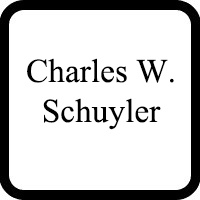Florence Foreclosure Lawyer, Montana
Not enough matches for Florence Foreclosure lawyer.
Below are all Florence Real Estate lawyers.
Charles W. Schuyler
✓ VERIFIEDCriminal, Accident & Injury, Estate, Real Estate, Business
Chuck Schuyler was admitted to the bar in 1975, Montana and U.S. Supreme Court, is a graduate of the University of Montana (B.A. 1969, J.D. 1975) and ... (more)
Daniel S. Morgan
✓ VERIFIEDBankruptcy & Debt, Garnishment, Foreclosure, Bankruptcy
Helping Montanans who are struggling with debts since 1995.
Dan Morgan was admitted to the State Bar of Montana in 1995, and joined Montana’s federal bar and Bankruptcy Section in 1996, mostly representing de... (more)
G. Patrick Hagestad
Accident & Injury, Estate, Lawsuit & Dispute, Real Estate
Status: In Good Standing
W. Adam Duerk
Insurance, Consumer Protection, Products Liability, Premises Liability
Status: In Good Standing
Gerald W. Steinbrenner
Real Estate, Lawsuit & Dispute, Estate, Employment, Accident & Injury
Status: In Good Standing
David Rodli
Residential Real Estate, Commercial Real Estate, Estate Planning, Personal Injury
Status: In Good Standing
P Mars Scott
Commercial Real Estate, Family Law, Household Mold, Personal Injury
Status: In Good Standing
John F. Jenks
Residential Real Estate, Insurance, Estate Planning
Status: In Good Standing Licensed: 32 Years



